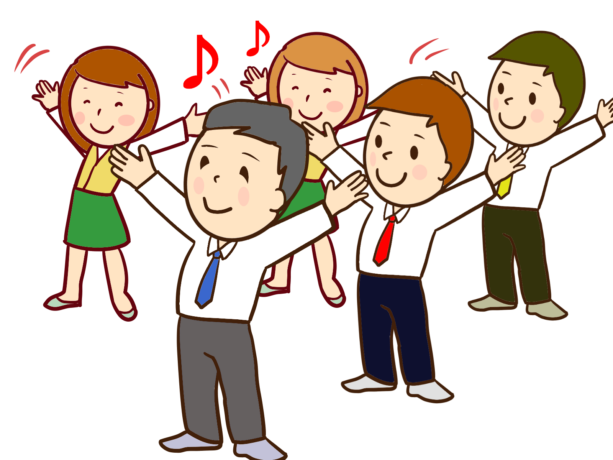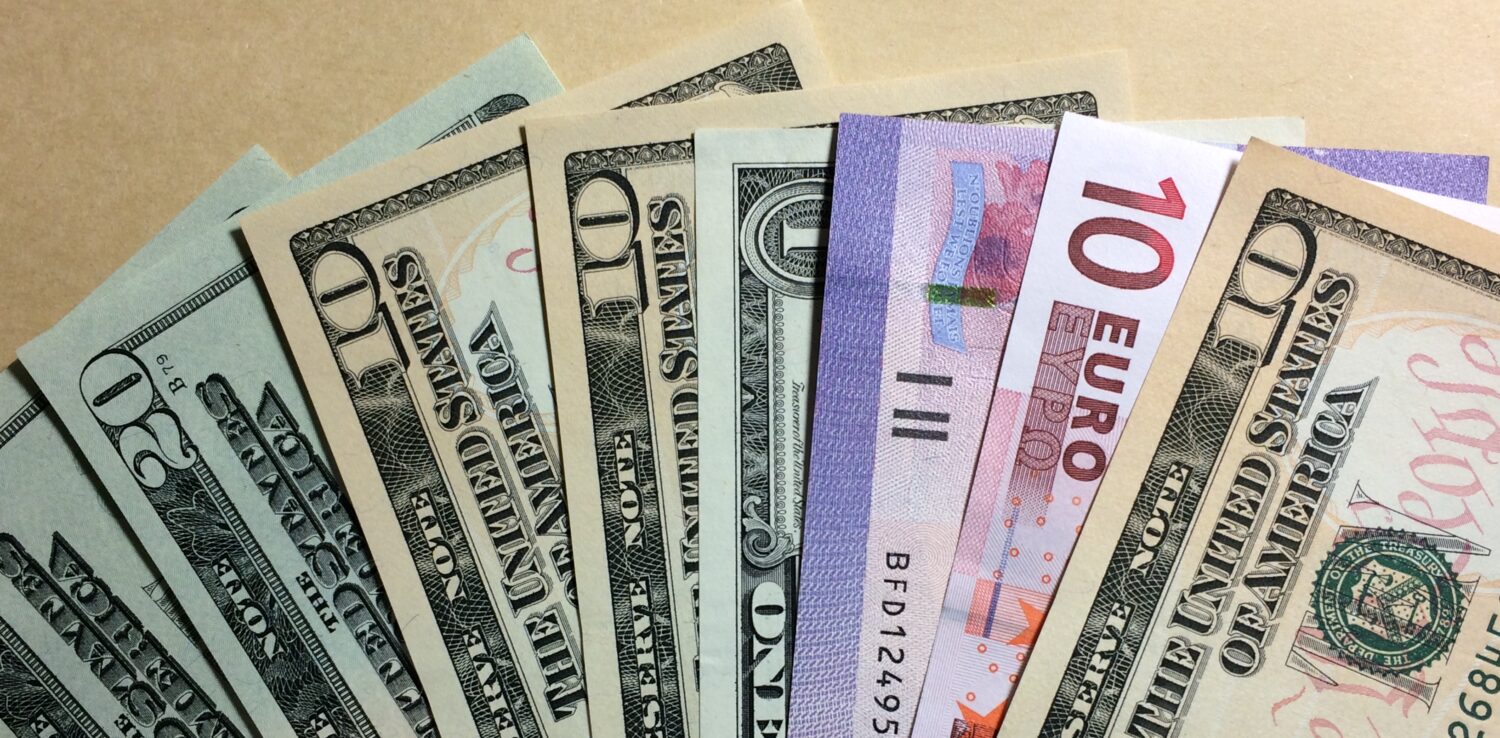Business card
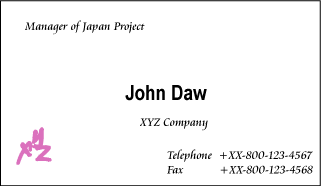
A business card is called “Meishi” in Japan. When you meet somebody new, Meishi is the most important tool for you. When you see your guest, hand your Meishi to her/him before shaking hands. During meetings, you shouldn’t play with their cards. It is considered to be rude. Your country code should be on your business card. You may lose your business without it. If your customer doesn’t have an English Meishi, you should ask them to write their name and company name on the backside. Now you can retrieve your contact person’s information even if the card has only Japanese characters.
Kaizen
This is the most effective project that Japanese workers have been working on. Everybody is seemed to make efforts to improve the job. Also, 5S is used in the Kaizen program.
Enkai (party)
What’s Enkai?
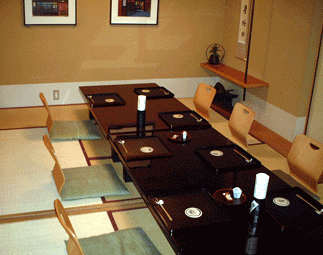
It is a drinking party for various occasions. Welcome enkai and farewell enkai are very popular when you visit Japan in business. It starts with the boss’s talk and ends with Tejime. Many Japanese restaurants have rooms for Enkai. Sometimes Japanese Enkai is tough for foreigners since you need to sit on a Tatami mattress bending your needs for a couple of hours. This sample room has sitting chairs. It helps you a little bit. picture of enkairoom, business party in Japanese way, sitting on Tatami. picture of enkai room, sitting on Tatami but there is a space for your legs. very gentle for foreigners.
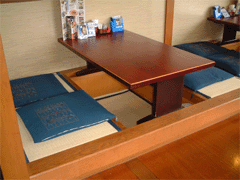
This is a new style of restaurant to sit down. Japanese restaurants still use Tatami and Table setup. The foot space is prepared one step down from the floor. It is much easier to sit down during drinking.
Enkai speech
When we start a party, we raise our glasses and toast saying “Kanpai”.ie., cheers!. If you are the guest of the party, you will be requested to make a quick speech. In Japanese? If possible, it is preferable. If not, don’t mind. Just make a speech in English or your native language. Someone transrates your speech in Japanese.
End of Enkai
At the end of the party, we close it by clapping our hands and praying for everyone’s health and happiness, business success.. There are two types of clapping hands.
1. Only clap
Someone says “Yooooo” then one clap.
2. 3,3 and 7 claps
Someone says “Yooooo” then three claps pause and 7 claps. Afterwards many clapping hands in both cases. Sample of.
3,3 and 7 claps
clap, clap, clap pause
clap, clap, clap pause
clap, clap, clap, clap, clap, clap, clap
Hanko (Personal Seal)
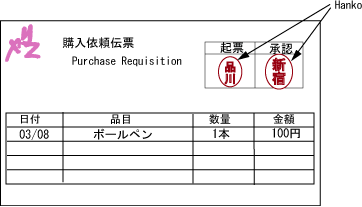
It is a typical local manner in Japan. personal seal, instead of a signature, this type of seal is used to be approved. This is a kind of stamp that has the name of the holder. The Hanko works as same as your signature to validate the approval of the owner. If the document which you made has a print of Hanko of your boss, it means your document is approved. There is various type of Hanko. Most important of Hanko is “Shain” for a company and “Jituin” for a person. “Sha” means Company and “in” means stamp.
No Overwork Day
This is called “No Zangyo day”. Employees are supposed not to do overwork. It is set on Wednesday or Friday.
Smoking in office
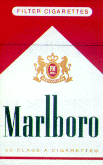
Japanese office was out low area concerning smoking.
Even in front of the customer, they did not care to smoke.
You might have a terrible experience that all your clothes smell smoke.
The smoking situation becomes much better than before. Still, you may have trouble with smoking.
Before getting into such a situation, you had better tell them you hate smoking.
Good luck.!!
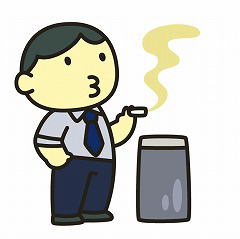
When you are going to use JR line with Super Express, you can specify the preference of the reserved seat, smoking or non-smoking. If you aren’t a very heavy smoker like a chain smoker, you had better select a Non-smoking car. The smoking cars look like the real smoke rooms to make smoked foods since ventilation is not enough.
When you want to smoke, you can move to the designated car for smokers, smoke there, exhaust the smoke and come back to the seat.
picture of smoking man they don’t care to smoke anywhere.
Symbols in charts
Business in Japan – There are several customs and rules about business. Meishi, Kaizen, Hanko, Enkai etc. from MUMU Travel Tips in Japan Sometimes Japanese use very strange characters in the comparison charts.
See the following samples.
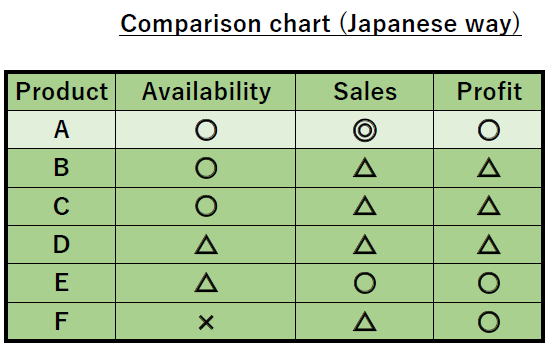
Business in Japan – There are several customs and rules about business. Meishi, Kaizen, Hanko, Enkai etc. from MUMU Travel Tips in Japan Here
○ means good.
× means poor.
Sometimes triangle (△) is used as a symbol of intermediate or “yes or no”.
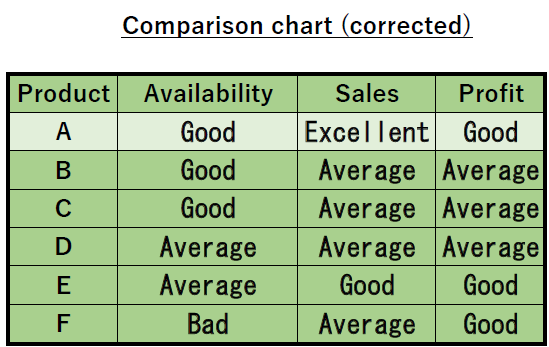
Is this much understandable? Product A is the best choice.
Presentation
LCD Projector
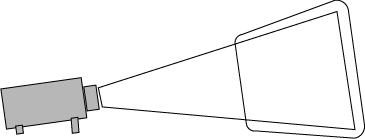
In Japan, there are many advanced companies to make Computer LCD projectors.
But unfortunately, fewer companies have LCD projectors in a conference room. good communication tool with computer you want to make a presentation at the customer’s office, you had better inform them in advance that you want to use your computer for your presentation.
Even the office has an LCD panel, your computer may not work perfectly with the connection trouble. It is the most important time for you to make a good presentation. You should prepare everything for any occasion. And handout would be a good idea to pass around before the meeting. They might not understand very well what you explain to them about your product/service but may understand what you show on the documentation, It would be good to use many charts and drawing to make them understand your presentation easily.
Eye contact
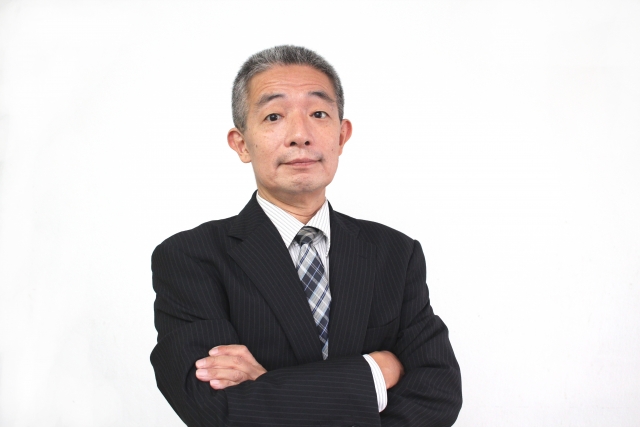
During a Japanese presentation, a Japanese presenter might not see your eyes and vice versa. We think it is rude to see the face and eyes of the customers directly. In your presentation, they keep their face down and avoid seeing your face. Even though don’t worry. They are listening to your words.
Gymnastics
When you visit your customer you may see a strange movement. Suddenly music starts and everybody in an office stands up. And starts physical exercise It may scare you. It is a company gymnastics. At a specific time every day, it is taken place. Especially it is more popular at plants
Prevention for tendovaginitis, back pain, stiff neck and economy class syndrome.
